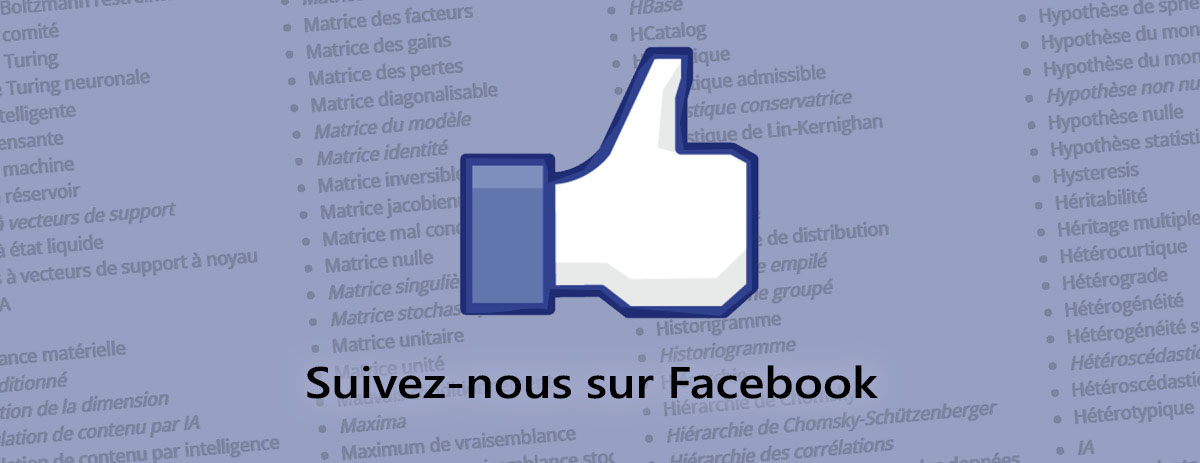Intelligence artificielle symbolique
Domaine
Intelligence artificielle
[Category:Coulombe]]Coulombe
Définition
L'intelligence artificielle symbolique désigne l'ensemble des approches et techniques en IA qui sont fondées sur des représentations "symboliques" (lisibles par l'homme). L'intelligence artificielle symbolique repose sur l'hypothèse que de nombreux aspects de l'intelligence peuvent être simulés par la manipulation de symboles. Par exemple, la logique et le raisonnement symbolique, le traitement de la langue naturelle par des grammaires de symboles, les algorithmes de recherche dans les espaces d'états, les systèmes à base de règles, et les systèmes à base de connaissances ou systèmes-experts. L'IA symbolique fut le paradigme dominant de la recherche en IA depuis son origine au milieu des années 1950 jusqu'au début des années 1990.
Français
<poll> Choisissez parmi ces termes proposés : approche symbolique IA symbolique IA à l'ancienne intelligence artificielle symbolique </poll>
Discussion:
Pour le moment, le terme privilégié est «intelligence artificielle symbolique».
Anglais
Symbolic artificial intelligence
Symbolic artificial intelligence is the term for the collection of all methods in artificial intelligence research that are based on high-level "symbolic" (human-readable) representations of problems, logic and search. Symbolic AI was the dominant paradigm of AI research from the mid-1950s until the late 1980s.[1][page needed][2][page needed]
John Haugeland gave the name GOFAI ("Good Old-Fashioned Artificial Intelligence") to symbolic AI in his 1985 book Artificial Intelligence: The Very Idea, which explored the philosophical implications of artificial intelligence research. In robotics the analogous term is GOFR ("Good Old-Fashioned Robotics").
The approach is based on the assumption that many aspects of intelligence can be achieved by the manipulation of symbols, an assumption defined as the "physical symbol systems hypothesis" by Allen Newell and Herbert A. Simon in the middle 1960s.
The most successful form of symbolic AI is expert systems, which use a network of production rules. Production rules connect symbols in a relationship similar to an If-Then statement. The expert system processes the rules to make deductions and to determine what additional information it needs, i.e. what questions to ask, using human-readable symbols.

Contributeurs: Claude Coulombe, Jacques Barolet, wiki






